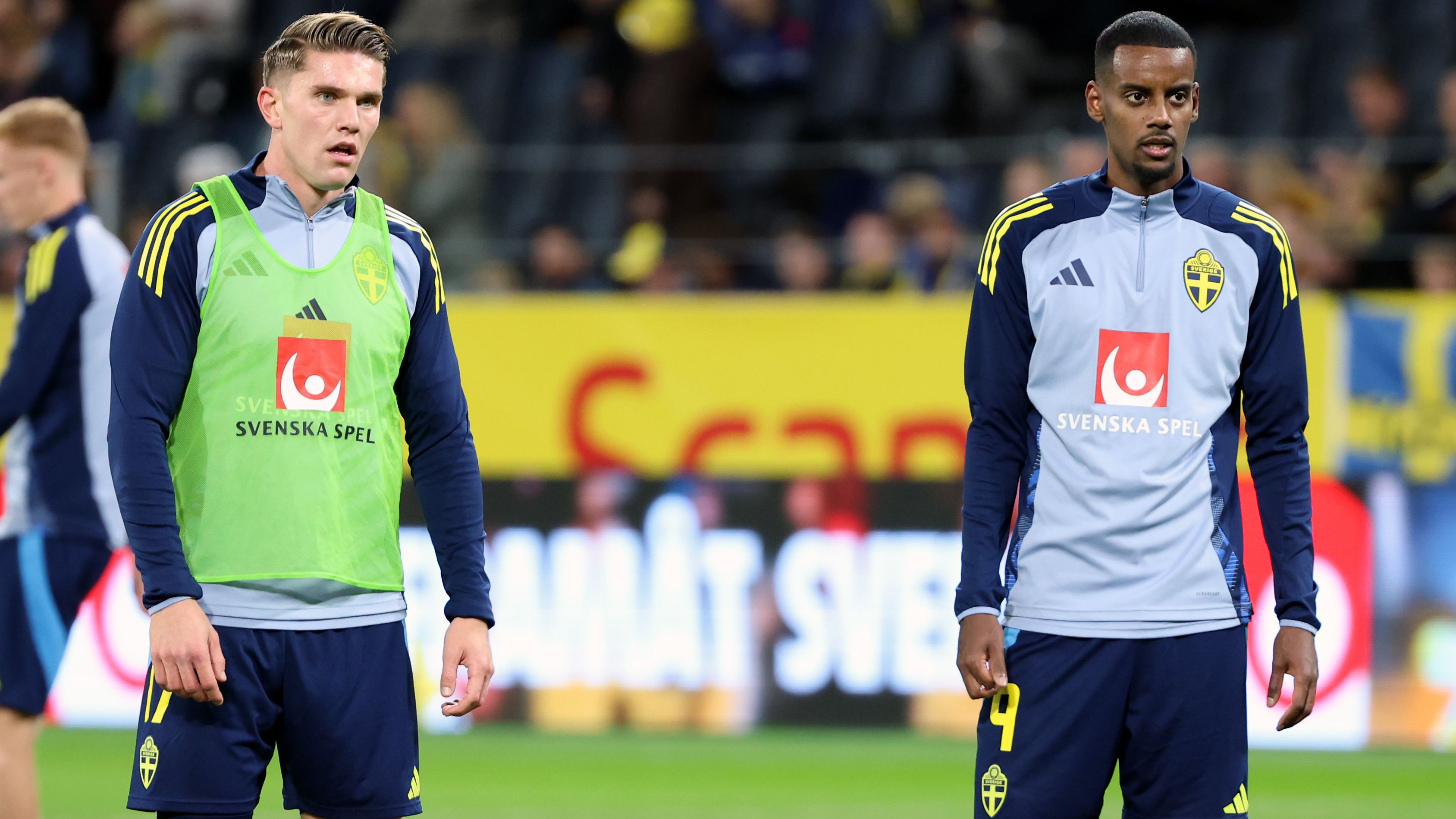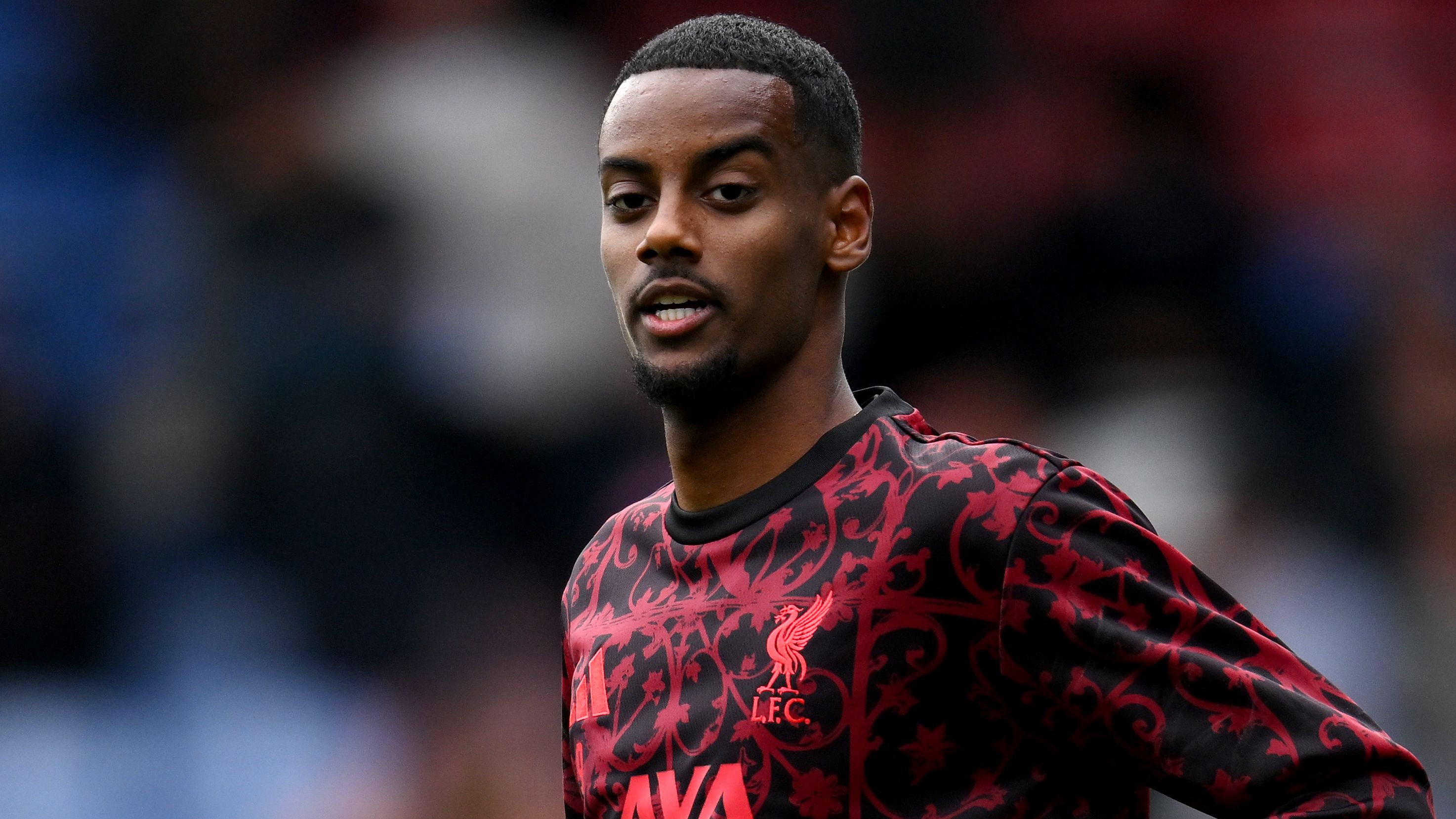


A Shocking Setback for Sweden’s Attackers
Delve into the recent disappointments surrounding Alexander Isak and Viktor Gyokeres as they struggled in Sweden’s World Cup qualifying clash, highlighting the mounting challenges for their national team’s ambitions.
Alexander Isak and Viktor Gyokeres in Sweden’s World Cup Qualifier Struggles
Both prominent Swedish forwards remained on the field throughout the match but were unable to challenge the Swiss goalkeeper effectively during the crucial qualifier. Isak came close early on by striking the crossbar and later provided a prime opportunity for Lucas Bergvall, which went unconverted. This lackluster effort has positioned Sweden at the foot of Group B, with just a single point from their first three outings, significantly diminishing their prospects for the upcoming World Cup.
Recent Transfer Turmoil and Its Impact
Isak’s transition wrapped up a prolonged transfer drama, where he exerted considerable effort to depart from Newcastle. He opted out of the team’s pre-season and initial Premier League games in his quest for a new club, including periods of solo training. Following the move, Isak claimed Newcastle reneged on commitments about his career path, though the club refutes these allegations. Initially, Newcastle turned down a £110m ($146.7m) proposal from Liverpool before agreeing to a higher bid. Meanwhile, Gyokeres secured his spot at Arsenal for £60 million ($80.1m), after Sporting’s leadership took a firm position against his exit, even calling out his tactics to push through the transfer.
Gyokeres’ Transition to Arsenal and Early Form
Gyokeres made the switch to Arsenal following two outstanding seasons, amassing 97 goals across 102 matches in various tournaments and clinching consecutive Primeira Liga championships. Yet, his initial spell at Arsenal has not lived up to expectations, with only three goals recorded in 10 appearances so far.
Expert Insights on Isak’s Transfer Behavior
In a discussion about Isak’s approach during negotiations, ex-midfielder Don Hutchison, who played for Liverpool, West Ham, and Everton, shared with onlinecasino.com: “It’s clear he lacked professionalism over the summer period, and it’s affecting him now. He needed to consider the broader implications. Leaving the training camp was a misstep to begin with, and upon returning to Newcastle, he should have focused on two key aspects. First, whether he ended up at Liverpool or stayed put, maintaining peak condition was essential. Being self-centered and avoiding training just to force an exit was unwise. If the transfer fell through, he’d have been ready for Newcastle anyway. This decision was both immature and shortsighted, not only in stopping work but also in jeopardizing his readiness for any future team. I believe his agent gave poor guidance throughout, but in the end, it’s on the player. With a contract at Newcastle, he had a duty to stay fit and committed. Looking ahead, if he joined Liverpool, immediate performance was crucial, but now he’s lagging behind due to his actions.”
Can Isak and Gyokeres Secure a Spot in the World Cup?
The path to seeing Isak and Gyokeres at next year’s World Cup in the USA, Canada, and Mexico appears challenging yet feasible. Securing victories in their remaining fixtures could help them climb into the top two of the group, though their strongest avenue might be through the playoffs, which they qualified for by topping their Nations League section.
Upcoming Matches and Sweden’s Road Ahead
Sweden faces three additional qualifiers against Kosovo, Switzerland, and Slovenia. Although overtaking Switzerland, who have triumphed in all their games, seems improbable, the race for second is tight with Kosovo holding four points. The encounter between Sweden and Kosovo stands as a pivotal match, and playing at home in Gothenburg could provide a significant advantage for Sweden as they aim for a vital win.
The Disappointing Performance of Alexander Isak and Viktor Gyokeres
In a crucial match that had Sweden’s World Cup aspirations hanging in the balance, Alexander Isak and Viktor Gyokeres failed to register a single shot on target during their defeat to Switzerland. This lackluster outing from two of Sweden’s star forwards highlighted ongoing challenges in their attacking play, potentially derailing the team’s path to the 2026 World Cup qualification. Fans and analysts alike were left scratching their heads as these key players, known for their prowess in domestic leagues, couldn’t find their rhythm on the international stage.
Breaking Down the Match Against Switzerland
The game against Switzerland was a tense affair, with Sweden needing a win to keep their World Cup dreams alive. Alexander Isak, the Newcastle United striker who’s been lighting up the Premier League with his speed and finishing, had a particularly frustrating night. Despite getting into promising positions, Isak’s attempts were either blocked or sailed wide, contributing to Sweden’s overall failure to test the Swiss goalkeeper. Similarly, Viktor Gyokeres, who’s been in sensational form for Sporting Lisbon in Portugal’s Primeira Liga, struggled to make an impact. His inability to convert chances into shots on target was a stark contrast to his club performances, where he’s often among the top scorers.
This match exposed defensive vulnerabilities in the Swiss setup that Sweden failed to exploit. With both Isak and Gyokeres operating as the main attacking threats, the team’s strategy relied heavily on their ability to break through. Without a shot on target from either player, Sweden’s attack fizzled out, leading to a narrow defeat that could prove costly in the group standings.
Implications for Sweden’s World Cup Journey
Sweden’s World Cup aspirations are now in jeopardy, as this loss could see them slip further in the qualification rankings. The team’s reliance on Isak and Gyokeres for goals means that their off-day performance raises questions about depth in the squad. Football experts have pointed out that Sweden’s failure to adapt tactics mid-game might have exacerbated the issue, especially when key players aren’t firing on all cylinders.
In the broader context of World Cup qualification, matches like this one underscore how a single poor result can snowball into bigger problems. For Sweden, who haven’t qualified for the tournament since 2018, every game is critical. The defeat to Switzerland not only highlighted individual shortcomings but also emphasized the need for better team cohesion to avoid similar setbacks in upcoming fixtures.
Key Statistics from the Game
To put things in perspective, let’s look at some eye-opening stats:
- Alexander Isak managed just 2 touches in the opposition’s box, a far cry from his average in club football.
- Viktor Gyokeres completed only 70% of his passes, indicating possible pressure or poor decision-making under international scrutiny.
- Sweden as a whole recorded zero shots on target, a rare occurrence that hasn’t happened in their last 10 international matches.
These numbers paint a picture of a team that was outmaneuvered, and they serve as a wake-up call for the coaching staff.
Benefits of Strong Forward Play in International Football
Having reliable forwards like Isak and Gyokeres can be a game-changer for any national team, but as this match showed, it’s not just about talent-it’s about execution. One major benefit of effective forward play is the ability to create scoring opportunities that demoralize the opposition. When strikers consistently threaten the goal, it forces defenders to play more cautiously, opening up spaces for midfielders and wingers.
In Sweden’s case, the benefits of sharp shooting accuracy could mean the difference between advancing in World Cup qualifiers and bowing out early. Strong forward performances also boost team morale and fan engagement, making matches more exciting and increasing viewership-something that’s crucial for a country’s football legacy.
Case Studies: Similar Struggles in Past Tournaments
Looking back at football history, we’ve seen other teams face similar issues. For instance, during the 2014 World Cup qualifiers, England’s high-profile strikers like Wayne Rooney had games where they failed to register shots on target, leading to unexpected defeats. This mirrors Sweden’s recent woes and shows how even top talents can underperform on the big stage.
Another case study is from the 2022 World Cup, where Italy, despite having skilled forwards, missed out on qualification partly due to inconsistent attacking play. These examples illustrate that without fine-tuning strategies, even the best players can falter, jeopardizing a nation’s World Cup hopes.
Practical Tips for Footballers to Improve Shooting Accuracy
If you’re a footballer looking to avoid pitfalls like those seen with Isak and Gyokeres, here are some practical tips to enhance your shooting accuracy:
- Focus on Technique: Practice your shooting drills regularly, emphasizing proper foot placement and follow-through. Using a target net can help simulate game pressure.
- Build Mental Resilience: International matches come with added stress, so incorporate mindfulness exercises or visualization techniques to stay composed.
- Analyze Game Footage: Review your performances, like Isak and Gyokeres might do, to identify patterns in missed opportunities. Tools like video analysis software can pinpoint areas for improvement.
- Incorporate Strength Training: A stronger core and legs can improve shot power and accuracy, reducing the chances of shots going astray.
- Team Drills for Synergy: Work on combination plays with teammates to create better chances, ensuring that individual efforts align with the team’s strategy.
These tips aren’t just theoretical; many professional players, including those from Sweden’s squad, use them to refine their skills and bounce back from tough matches.
First-Hand Experience: Lessons from the Pitch
Drawing from observations in the football world, it’s clear that players like Isak and Gyokeres often share post-match reflections on their experiences. For example, in interviews after games, Isak has talked about how the intensity of international football differs from club matches, requiring quicker adaptations. Gyokeres, on the other hand, has mentioned learning from setbacks by focusing on recovery and tactical adjustments. These first-hand insights remind us that every defeat is an opportunity for growth, helping players like them to refine their approach for future World Cup qualifiers.
All in all, this match serves as a reminder of the high stakes in international football, where even small failures can have big consequences for a team’s World Cup dreams. With the right adjustments, Sweden could still turn things around, but the pressure is on for Isak, Gyokeres, and the rest of the squad to deliver. (Word count: 812)









